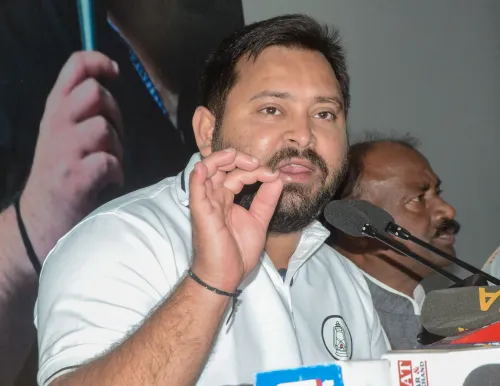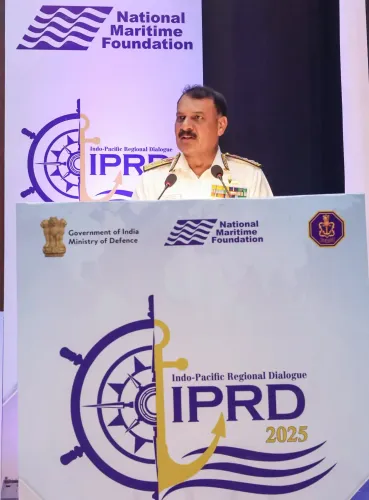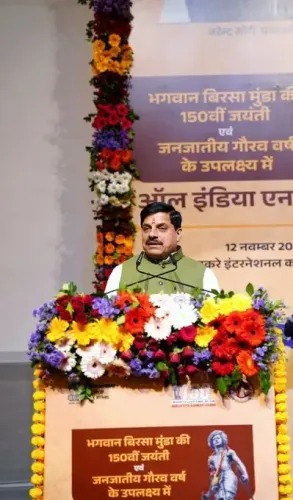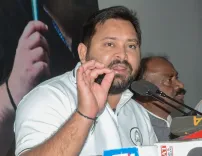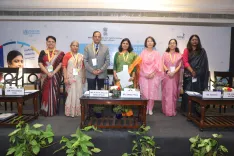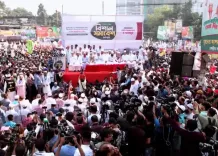Supreme Court: Abusing by Caste in Private Not a Crime Under SC/ST Act

Synopsis
Key Takeaways
- The Supreme Court ruled that caste-based insults in private do not violate the SC/ST Act.
- Public visibility is essential for an offence to be established under the law.
- The decision was made in light of a case involving a complaint by a Revenue Inspector.
- The ruling quashed previous trial proceedings from the Madras High Court.
- The court highlighted the importance of context in determining the legality of caste-based abuse.
New Delhi, Jan 31 (NationPress) The Supreme Court ruled on Friday that abusing in the name of caste within the four corners of the chambers of a public official does not constitute an offence under the SC/ST Act.
The apex court was examining a criminal appeal that challenged a decision by the Madras High Court, which had rejected the appellant's petition under Section 482 of the Code of Criminal Procedure, 1973 to annul the FIR and subsequent legal actions, stating that the appellant would not suffer any prejudice if subjected to a trial.
According to the prosecution, in September 2021, the appellant approached the respondent, a Revenue Inspector, regarding the status of a petition submitted by the appellant’s father about including his name on the land patta. This led to a quarrel between them.
Subsequently, the Revenue Inspector lodged a complaint with the Lalgudi police against the appellant for using his caste name at the Tiruchirappalli Revenue Divisional Office.
An FIR was filed against the appellant for offences under Sections 294(b) and 353 of the Indian Penal Code, 1860 in conjunction with Sections 3(1)(r) and 3(1)(s) of the Scheduled Castes and Scheduled Tribes (Prevention of Atrocities) Act, 1989.
Before the apex court, the appellant’s legal counsel argued that even if the allegations in the FIR were taken at face value, they did not amount to an offence under the SC/ST Act.
The apex court, referring to Section 3(1)(r) of the SC/ST Act, noted that to establish an offence, it must be proven that the accused intentionally insulted or intimidated a member of a Scheduled Caste or Scheduled Tribe in a location within public view.
For an offence under Section 3(1)(s), the law requires that the accused abuses a member of a Scheduled Caste or Scheduled Tribe by caste name in a place that is publicly visible, it added.
Evaluating previous apex court rulings on the meaning of “within public view,” the Justice B.R. Gavai-led Bench stated that a place categorized as ‘within public view’ must be open, allowing the public to witness or hear the accused's remarks to the victim.
The Bench further clarified, "If the alleged offence occurs within the four corners of a room where no members of the public are present, it cannot be considered as taking place in a location within public view."
The court noted that the incident occurred within the four walls of the complainant's chambers, and other colleagues of the Revenue Inspector arrived only after the incident.
"Hence, we believe that since the incident did not transpire in a location deemed within public view, it does not fall under the provisions of either Section 3(1)(r) or Section 3(1)(s) of the SC/ST Act," ruled the Justice Gavai-led Bench.
“The allegations in the FIR, even if taken at face value and fully accepted, do not prima facie establish an offence under Section 3(1)(r) or Section 3(1)(s) of the SC/ST Act," it concluded.
In allowing the appeal, the Supreme Court overturned the Madras High Court's ruling and quashed the trial proceedings.

